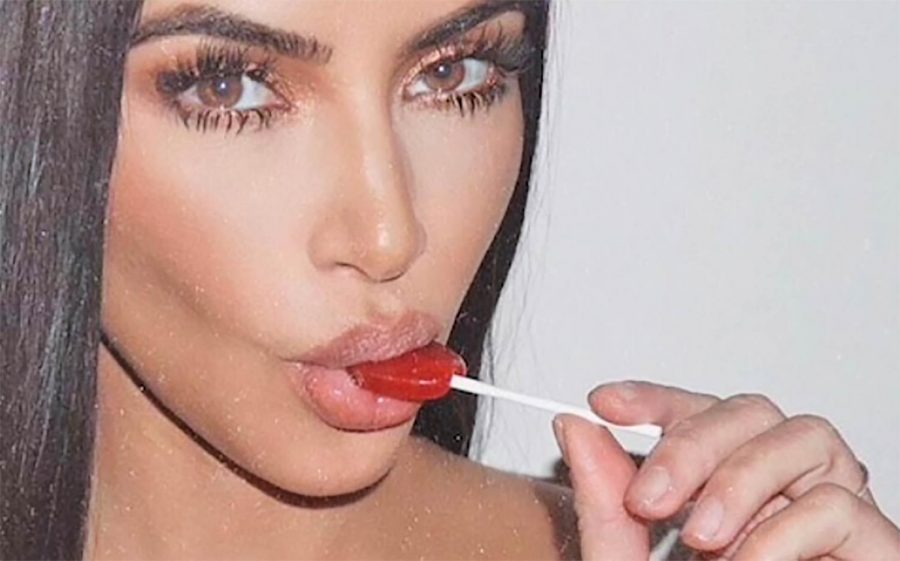Influencer culture promotes, encourages toxic lifestyle choices
Kim Kardashian promoted appetite suppressant lollipops to much controversy last May.
The internet is a fast-growing market for all things beauty and health. Consumers of all ages flock to beauty salon companies and websites on the days of a big launch, usually involving celebrities and social media bloggers. Lately, that’s been a recurring reality for entertainment moguls such as Kylie Jenner, Kim Kardashian and Cardi B. With thousands more individuals prepared to spend large amounts to support their favorite influencers every year, the microscope they are under grows larger and their presence on the internet begins to take on more meaning.
Daily internet users are a primary target for many advertising companies. Looking at that from the perspective of an influencer on any given social media platform, over 70 percent of their following is between the ages of 18 and 34. Gaining the capacity to affect large groups of young consumers highlights the importance of what that means in the context of Instagram and Facebook posts made everyday advertising detox teas, appetite-suppressing lollipops and protein shakes.
It’s no secret that there is a lot of revenue that can be made from simply referring your followers to companies focused on quick fixes and easy diets; what is a secret is whether or not these products actually work. The evidence provided by companies such as Flat Tummy Co. or Teami Blends usually comes directly from the consumers and celebrities with millions of followers who try to convince their audience with well-lit planned product shots.
The controversy over whether or not this should be continued has recently gained more traction, especially on Instagram when Kim Kardashian posed an advert of meal replacement shakes. It was understandably met with a lot of backlash, seeing as these products have shown to be nothing more than placebos with no large-scale trials done to prove their effectiveness.
Young women and men alike are being sold a reality that is not truly attainable in a lifestyle filled without healthy eating habits and proper workouts. Consumers are being fed the idea that they can continuously depend on weight-loss supplements without warning them of how it can negatively impact their health after long-term use. Sure it may temporarily get rid of that tummy bloating and give you more energy like Kylie Jenner claims, but it can also lead to heart and intestinal complications.
From an outsider’s perspective, it’s easy to say that the solution would be to stop selling these products, but that’s not looking likely. The market in convincing young consumers that they need to fit a certain mold has been in the works since before the 21st century, the fact that this practice was safely approved by the Food and Drug Administration makes it that much easier to continue profit. It’s more effective now since these celebrities and influencers have provided a real-life example of what to strive for.
The issue is not with the products themselves, but with the lack of transparency and information that surrounds this industry. Along with nutritionists and medical professionals warning against the dangerous side to these weight-loss alternatives, there are numerous individuals who spotlight and share the information with millions of followers. Actress Jameela Jamil is one of them.
Following the initiative of her I Weigh movement, consumers should pressure weight-loss and diet companies to be explicit about what is in their products and how it works without masking the information through popular influencers and attractive graphic design.







